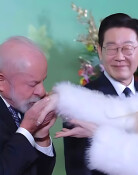Qualcomm Demands For Half Of CDMA Royalty Of Korea To China
Qualcomm Demands For Half Of CDMA Royalty Of Korea To China
Posted July. 31, 2001 09:44,
After Qualcomm transferred the portable communication technologies to China just for half of the royalty that applies to Korea, a problem arose.
The Qualcomm grew from a mere venture company and became a giant company by commercializing the Code Division Multiple Access (CDMA) portable communication service into Korea for the first time.
The relevant businesses are strongly blaming for the Qualcomm, who neglected the most-favored-nation agreement with Korea and decided to receive lower royalties from China.
According to Ministry of Information and Communication (MIC) and the relevant businesses on July 30, the Qualcomm has been confirmed to have decided to receive 2.65 percent royalty from China, which is almost half of the Korea royalty, when it made contracts with Chinese companies, including Joonghung Communications on technology transfer.
Although the export royalty had been known to be near 9 percent, it was revealed to be 5.75 percent, which is the same level as Korea.
Korean manufacturers currently pay 5.25 percent (Export 5.75 percent) for terminals and 6.0 percent (Export 6.5 percent) for system equipments as CDMA royalties. The royalty revenue of the Qualcomm, which had no name until Korea commercialized CDMA technology in 1995, has increased annually and is now beyond 1 trillion won.
Meanwhile, the Qualcomm had not paid 100 million dollars of the royalty dividend (20 percent) to Korea Electronics and Telecommunications Research Institute (ETRI), a co-developer. The money was returned to ETRI only after arbitration was awarded by the International Court of Arbitration. Korean manufacturers pointed out, `` If Korea pays more royalties than China, the competitive power of Korea will be apparently reduced.``
However, there are mixed opinions among Korean government and manufacturers. Large manufactures prefer individual negotiations, while medium and small-sized enterprises demand for Korean government’s interventions. Kim, Woonsup, Executive Officer of Samsung Electronics, said, ``We’ll adjust the royalty after reviewing the contents of the Qualcomm’s contracts with China. The adjustment will be done separately.`` Meanwhile, Kim, Yoongon, team leader of Sewon Telecom (medium and small-sized manufacturer), said, ``If a medium and small-sized company negotiates with the Qualcomm directly, it is likely not to get a good adjustment. Thus, Korean government should intervene in this matter on behalf of national interests.``
Nevertheless, MIC is in an awkward position to be involved in the royalty problems, which have occurred among business partners.
Noh, Heedo, Officer of International Cooperation in MIC, predicted positively, ``If China pays lower royalties than Korea, there is no problem to lower the Korea’s royalty because of the most-favored-nation agreement.``
Kim, Sungwoo, Korea branch head of the Qualcomm, said, ``We have been notifying the contents of our contracts with China to Korean companies. We will solve this issue by the negotiations with each company individually.``
freewill@donga.com







